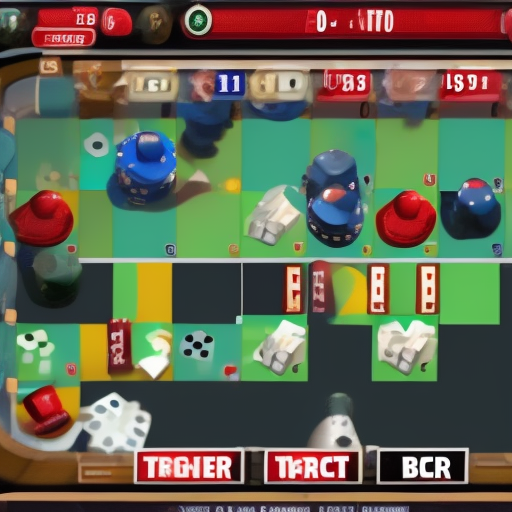Do you love a good challenge? The classic board games of poker and chess have been around for centuries, making for some of the most intense moments of strategy, decision-making, and outwitting opponents. Though poker and chess have a lot in common, it’s also fair to ask: is one harder than the other? In this article, we’ll dive into the complexity of both games to answer the age-old question: is poker harder than chess?
Understanding the Games
When it comes to poker and chess, both games require a lot of skill and strategy. But how are they different? For starters, poker is a game of chance and bluffing, while chess is all about predicting and reacting to your opponent’s moves.
In poker, you can have the worst hand at the table but still win by bluffing your way through the game. You need to understand how to read your opponents and anticipate their next move. On the other hand, in chess, there is no bluffing involved. Each move requires careful consideration and calculation as you try to outmaneuver your opponent. The emphasis is on predicting and blocking your opponent’s moves while advancing your own pieces towards checkmate. It’s like a game of mental boxing, where each move requires planning and strategy to take down your opponent. Regardless of which game you prefer, both require a lot of practice and dedication to master.
Comparing the Skill Elements
When it comes to of poker and chess, there are certainly some similarities. Both games require a keen sense of strategy and the ability to think several moves ahead. And in both games, making the wrong move can lead to devastating consequences.
However, there are some key differences between the two that make poker arguably more difficult. For one, poker involves an element of chance that is absent in chess. No matter how skilled a player is, there is always the possibility that they will be dealt a poor hand. This adds an additional layer of complexity to the game that requires players to be constantly adapting and rethinking their strategies. Additionally, in poker, you don’t have perfect information about your opponent’s hand– you have to make educated guesses based on their behavior, previous actions, and other contextual clues. This means that there is always a certain amount of unpredictability and risk involved in every decision that you make at the table.
- similarities: strategy, thinking ahead
- poker has an element of chance
- no perfect information in poker about opponent’s hand
To illustrate this point, let me tell you a story. I once played in a poker tournament where I was dealt an ace-king suited, one of the strongest starting hands in the game. I bet aggressively and ended up going all-in against my opponent, who called with their own pair of aces. I was confident that I would win the pot, but then the dealer revealed the river card– an unexpected queen that gave my opponent a higher pair and knocked me out of the tournament. Even though I had played my hand perfectly, there was nothing I could do to change the outcome. This kind of uncertainty simply doesn’t exist in chess, where every move is predetermined and the outcome of the game is entirely dependent on your own skill and foresight.
In conclusion, while chess and poker share some common elements of skill, the element of chance involved in poker makes it a more difficult game overall. The ability to read your opponent and make educated guesses about their hand adds an additional layer of complexity that simply doesn’t exist in chess. Ultimately, whether you believe that poker is harder than chess or vice versa, there’s no denying that both games require a great deal of practice, patience, and mental fortitude to truly master.
Exploring the Strategies
When it comes to poker and chess, both games require strategy and critical thinking, but they require different types of strategies. In chess, players have to think several moves ahead, anticipating their opponent’s moves and their own. Meanwhile, in poker, players have to be mindful of their opponents’ moves and take into consideration their own cards, position, and betting patterns.
One key strategy in poker is reading your opponents. This involves paying close attention to their body language, betting habits, and patterns. For example, if a player always checks before betting, they may have a weaker hand. Similarly, if a player suddenly starts acting nervous or fidgety, it could be a sign that they have a strong hand. In chess, players don’t have to worry about these types of “tells.” Instead, they have to analyze the board and think several moves ahead, trying to anticipate their opponent’s moves and come up with a winning strategy.
- In poker, players have to be mindful of their opponents’ moves and take into consideration their own cards, position, and betting patterns
- Players have to analyze the board and think several moves ahead, trying to anticipate their opponent’s moves and come up with a winning strategy
- One key strategy in poker is reading your opponents
- In chess, players don’t have to worry about these types of “tells”
Overall, both poker and chess require a different set of skills and strategies. While chess may require more analytic thinking, poker requires more interpersonal skills, such as reading body language and calculating risk. In conclusion, it’s hard to say which game is harder, as they both require a great deal of skill and practice. Nonetheless, exploring the different strategies of each game is fascinating and can constantly challenge and delight players. No matter which of these two classic games you prefer, it’s undeniable that poker and chess are two very distinct and complicated games to master. Both come with their own set of challenges and strategies, so put your nose to the grindstone and become the next great poker or chess champion!